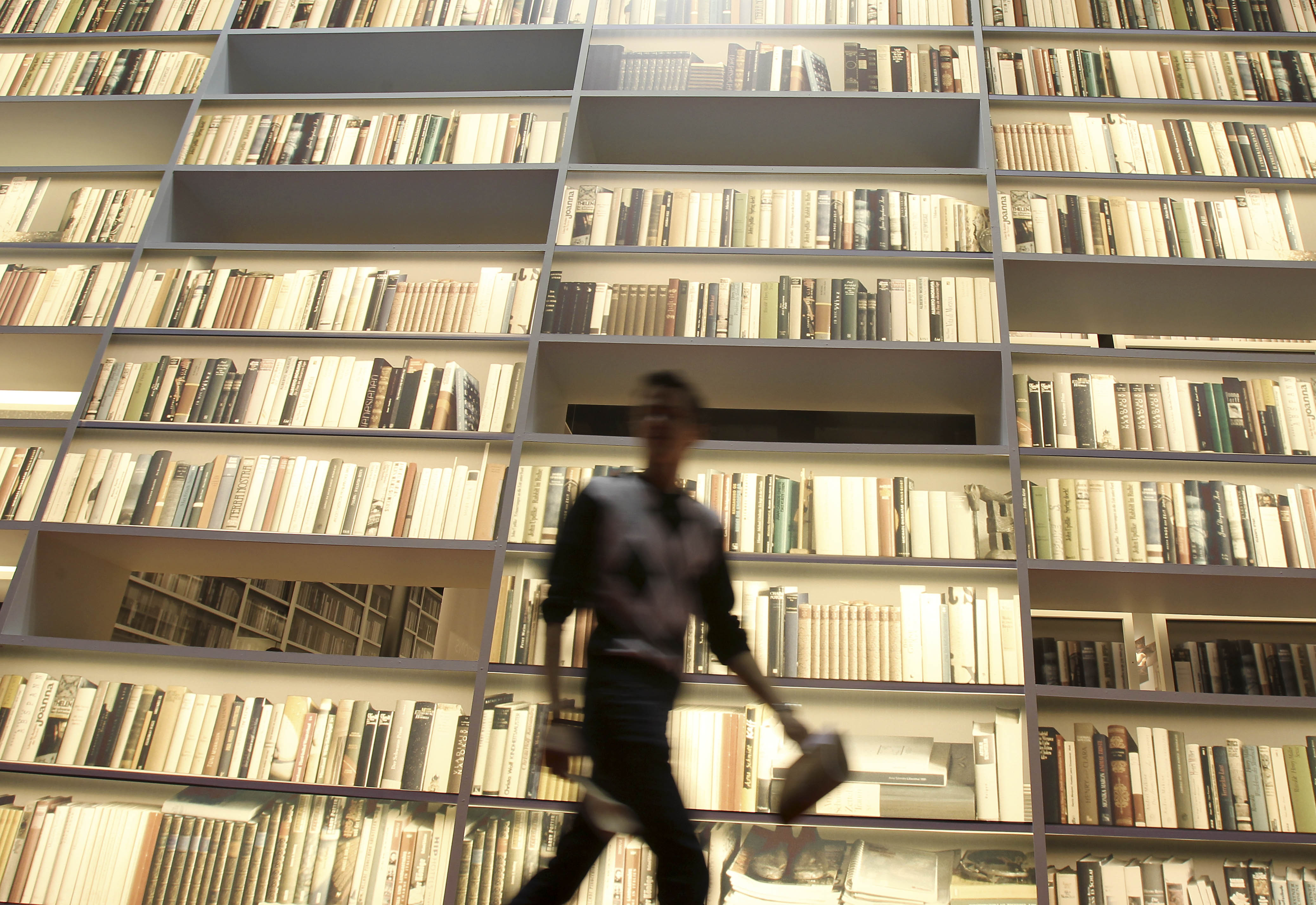
A man walks past bookshelves on display at the Milan's Furnishing Accessories Exhibition. Credit: AP Photo / Antonio Calanni
This week on Innovation Hub, we’re asking the smart questions. Or, more accurately, we’re asking questions that are all about being smart.
First up, if you thought that American schools were too focused on tests… wait until you hear about the Chinese education system. We talk with Lenora Chu, author of “Little Soldiers: An American Boy, a Chinese School, and the Global Race to Achieve,” about the radically different approaches taken by American and Chinese educators. Chu also tells us what she learned from sending her child to a Chinese school. (It involves being forced to eat eggs. Seriously.) And we’ll find out what America can learn from the Chinese focus on hard work over innate talent.
Then, getting enough sleep makes us healthier, less stressed, and yes, smarter. But our notion of sleep as eight hours of uninterrupted dreamtime - either alone or with a loved one - is actually pretty new. As Benjamin Reiss, author of "Wild Nights: How Taming Sleep Created Our Restless World,” explains, before the Industrial Revolution, people would sleep in two shifts at night. And entire families would use a single bed. So, if you’re not feeling too tired, take a listen and learn about how sleep evolved.
Finally, it turns out that in science, age is nothing but a number. Isaac Newton may have been in his twenties when he developed the ideas behind calculus, and yes, Niels Bohr developed a breakthrough model of the atom at 28, but youth isn’t everything. Albert-Laszlo Barabasi, a professor of network science at Northeastern University, explains that scientists may produce meaningful work earlier in their careers not because they’re smarter, but because they face more pressure to succeed.

